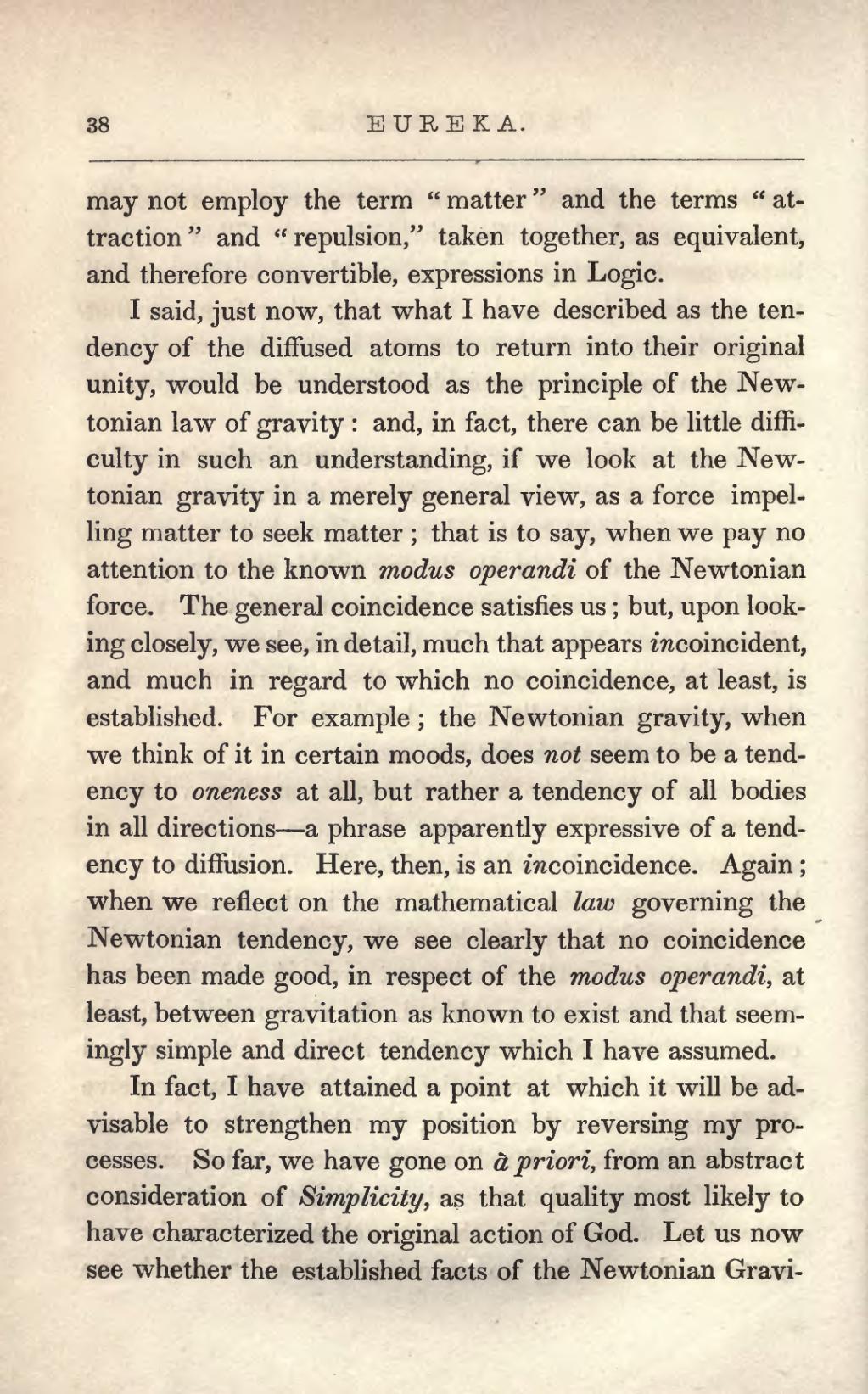may not employ the term "matter" and the terms "attraction" and "repulsion," taken together, as equivalent, and therefore convertible, expressions in Logic.
I said, just now, that what I have described as the tendency of the diffused atoms to return into their original unity, would be understood as the principle of the Newtonian law of gravity: and, in fact, there can be little difficulty in such an understanding, if we look at the Newtonian gravity in a merely general view, as a force impelling matter to seek matter; that is to say, when we pay no attention to the known modus operandi of the Newtonian force. The general coincidence satisfies us; but, upon looking closely, we see, in detail, much that appears incoincident, and much in regard to which no coincidence, at least, is established. For example; the Newtonian gravity, when we think of it in certain moods, does not seem to be a tendency to oneness at all, but rather a tendency of all bodies in all directions—a phrase apparently expressive of a tendency to diffusion. Here, then, is an incoincidence. Again; when we reflect on the mathematical law governing the Newtonian tendency, we see clearly that no coincidence has been made good, in respect of the modus operandi, at least, between gravitation as known to exist and that seemingly simple and direct tendency which I have assumed.
In fact, I have attained a point at which it will be advisable to strengthen my position by reversing my processes. So far, we have gone on à priori, from an abstract consideration of Simplicity, as that quality most likely to have characterized the original action of God. Let us now see whether the established facts of the Newtonian Gravi-
